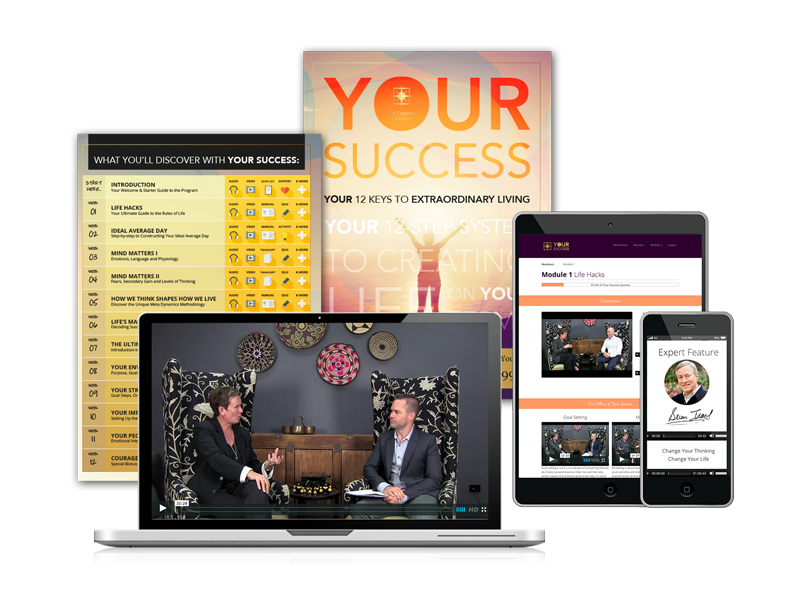I wanted to stick to my promise.
We looked at 11 ways to get rid of your fear once and for all in part I of this post.
Here’s a recap of part I in case you missed it:
- Identify your fear
- Know that failure is inevitable
- Embrace the no-lose model
- Shift your perspective about courage
- Let go of the need to control
- Model the right people
- Ask: what’s the worst that could happen?
- Identify the secondary gain
- If something doesn’t work, do something else
- Have a physiology of success
- Take action
Let’s look at the next 10 ways below.
How to Get Rid of Your Fear of Failure: 10 More Ways
12. Reframe your sentences
Failure is a relative term. Let’s say you coach 100 clients during a period of two years. You help them overcome obstacles and embrace change. You receive tons of positive reviews and testimonials as a “thank you”. But for some reason, you don’t attain a degree. Now, would you call this a failure? Or is it partial success? 100% success?
The answer is whatever works for you. So long as you’re taking the right action, there is no invalid definition of success – just as there’s no valid definition of failure. You decide what’s important for you and go forth to achieve it. For some people, taking the first step is a huge deal, and still a success. Expand your goal “to learn something new” and you’ll never fail. Reframe your definition because failure at one level is success at another level. It’s how you look at it.
13. Ask the Branson questions
I once read that Sir Richard Branson asks these questions when making important and difficult decisions.
– What’s the worst that could happen?
– And if it were to happen, can I handle it?
By making use of the only questions that matter, Branson is able to take so many risks in his life and business.
Go on and ask those questions around a decision you have to make. You’ll be surprised that more likely than not, the answer to above questions is “yes”.
14. Shoot for the moon, not mars
Too many times, we get carried away and compare our situation to the ones that have nothing to do with us.
I know someone who wants to become the next Steve Jobs. Nothing wrong with being determined, but they are so hard on themselves when they hit a setback.
Comparing yourself to successes of others and using it as a measuring stick is a poor strategy. If you’re a small business, you want to compare with another business that has reached the benchmark you’re aiming for (and not with billion-dollar corporations).
It’s great to have people who you want to model, but make sure your efforts steer you toward success, not idle comparison.
15. Doubt the doubt
How about this: the next time you smell fear of failure, challenge that thought. Doubt your doubts.
See what you come up with. Every person will get a different result. If you’re someone who seeks proofs, you can engage your mind in a logical discussion showing “proof” of your past successes. If you are a big-picture person, you can challenge your fear by visualising your future.
16. Remember there is no overnight success
Eddie Cantor was right. “It takes 20 years to become an overnight success”. Whoever invented that word was surely dreaming. Some stories appear to be an overnight success but in reality, there were some very specific action steps taken to realise that goal.
That includes winning the lottery too, because someone bought the ticket. But just as a lottery-winner ends up losing it all in less than a year, an overnight sensation (if there is one) goes up and falls back down with the same speed. Why? Because the person is not in alignment with success and there is no platform to sustain it.
This also ties back in with #14. We like to idolise successful people and believe they had it easy. Don’t discount the amount of dedication, commitment and courage it has taken them to be where they are today.
17. Problems can become Possibilities
Most people are sitting nice and tight in the centre of their comfort zone. Now imagine several P’s outside the circle. From their vantage point, these P’s are Problems.
But once you take the first step and gradually move toward the edge of the circle, you see the P’s become Possibilities or opportunities.
The point? Take the next best step, and you’ll see opportunities line up your way.
18. Say “Yes” more often
We’re quick to say “No”, “No thanks” and “Not now” because we’re so busy all the time. But here’s the thing: when you say “No”, you’re missing out on a new opportunity or discovery.
It’s time to swap your “No’s” to “Yes’s. Take a chance and for a week, say yes to a new experience, or something you’d normally turn down. And see how you go.
After all, saying “yes” got Jim Carrey to experience a new romance and a promotion at his job (quoting The Yes Man here). You never know what it’ll bring to you!
19. Embrace responsibility
Here’s what makes life easier: taking 100% responsibility for whatever happens in your life.
Just as expectation leads to suffering, if you rely on others to take responsibility for your success, you’re in for a depressive slump.
Contrary to what you may think, embracing responsibility is actually a very freeing thing – since there is no one else responsible for “making you feel _____”, you can change that emotional state instantly by choosing to focus elsewhere.
20. Acknowledge the mental chatter
Which is usually negative. Positive thinking helps produce visions and big picture goals. But negative thinking plays a role too – it can lead to solid planning and execution.
We get motivated in two ways – by moving toward pleasure and by moving away from pain. When you acknowledge your negative thoughts and channel them to your advantage, you’re steering away from pain and toward pleasure (success).
21. Smile!
There’s a lot of research about how your mind and body are connected. Noted physicist David Bohm conjectured that repetitive nature of thoughts can alter brain chemistry. Neuroscience is now confirming Bohm’s conjectures.
According to Neuro Linguistic Programming, physiology creates psychology. Your emotions affect your health and body. Some people even believe that all diseases begin in the mind. In short, all health problems are mental.
With the same logic of the connectedness between the two, if you alter your physiology, your psychology also changes. Smiling makes you feel happy because the physical act of smiling signals your brain to be happy.
Your Turn
Did you enjoy this list? What’s your personal favourite way to get rid of fear of failure? Perhaps you’ve got more to add to it – talk to us in the comments!
Leave a comment below and let me know. Remember, do your best to share as much detail as you can because thousands of amazing readers come here for inspiration each week. Your story may just be what they need to have a breakthrough, overcome a negative thought or develop courage to achieve their goal.


